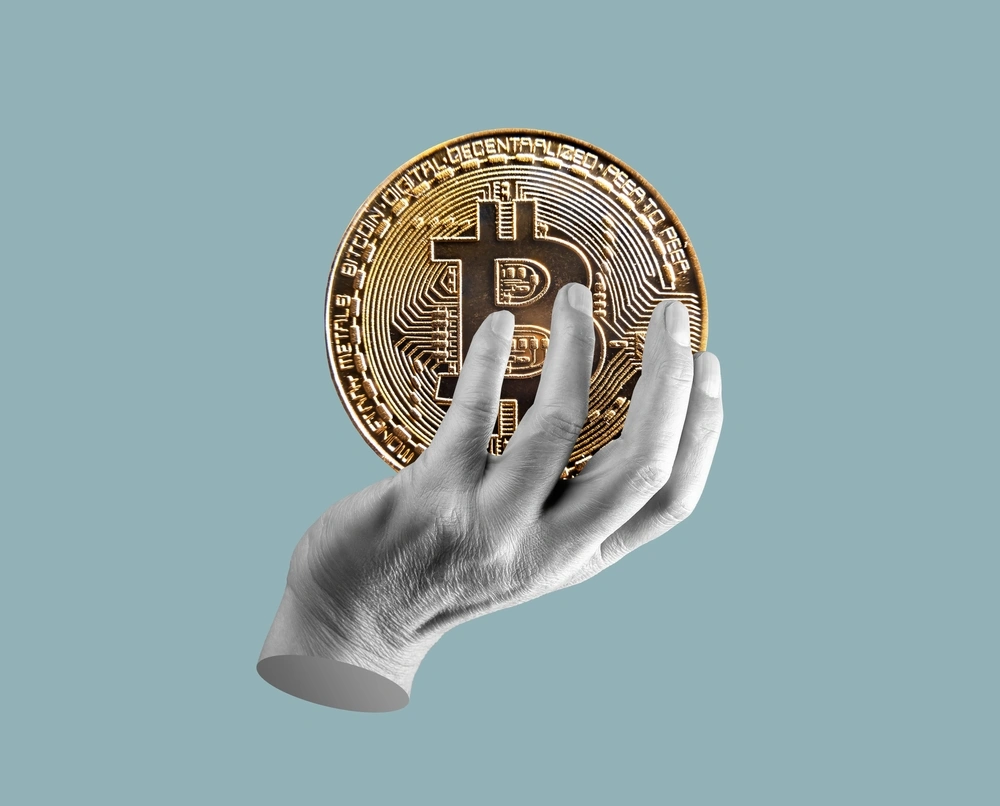|crypto, knowledgehub
What Is a Crypto Coin?

Crypto coins and blockchain technology have opened up exciting new possibilities for financial innovation. As digital assets and services continue to gain mainstream adoption worldwide, this emerging landscape promises both opportunity and change.
Let's explore how new platforms are shaping the future of money and payments. To understand cryptocurrencies, we must first define what a "crypto coin" actually is.
In simple terms, a crypto coin is a digital token that exists on a blockchain—a decentralized, public ledger maintained by a network of computers instead of a central authority.
Crypto coins' key characteristics include their use of blockchain technology for transactions, cryptographic security, and lack of central bank issuance.
Bitcoin was the first crypto coin launched in 2009 and remains the largest, but there are now thousands of alternative coins (altcoins) addressing different needs.
Ethereum, for example, hosts decentralized applications, while stablecoins attempt to peg their value to real-world assets like the US dollar for stability. Each crypto coin has its own use case and value proposition.
How does crypto work?
Under the hood, crypto coins rely on cryptography and blockchain technology. Cryptography ensures the secure verification of transactions through public and private key pairs.
Blockchain acts as a distributed ledger where validated transactions are "bundled" into cryptographically secured blocks, chained together in an immutable sequence. This allows the networks to achieve consensus without the need for centralized intermediaries.
Miners run specialized computers that validate transactions and add new blocks to the chain, incentivized by coins as rewards. This system is known as crypto mining.
Over time, these networks become more secure as additional blocks make revisions exponentially more difficult. Users can send and receive coins across borders instantly for very low fees, with no third-party involvement needed. It's a radically new system for value transfer.
What are examples of cryptocurrency?
As mentioned earlier, Bitcoin was the world's first cryptocurrency and remains the largest by crypto market cap today. Other major types of cryptocurrencies gaining widespread use include Ethereum, which allows for decentralized applications beyond money.
Additionally, there are stablecoins like EURK that are pegged 1:1 to real-world currencies such as euros as a euro stablecoin. Thousands more alternative coins, or "altcoins," have also emerged across various blockchains with novel functions and utilities.
What is a crypto coin used for?
While Bitcoin initially gained popularity as a peer-to-peer electronic cash system, today cryptocurrencies are used for much more than just crypto payments. Many people invest in cryptos as speculative assets with the hope that their value will appreciate over time.
Others utilize their programmability through smart contracts on blockchains to build decentralized applications. Businesses increasingly accept crypto as a payment method, with customers able to spend their crypto anywhere that displays signs like "Bitcoin accepted here."
What can you buy with cryptocurrency?
As cryptocurrency adoption has increased, so too has the list of goods and services that can be purchased with digital money.
You can also pay with cryptocurrency for a growing variety of tangible assets, including real estate, cars, air travel, gift cards for popular brands, artwork, gold and silver, and more.
In some countries, you can even use your crypto to pay bills, buy coffee, or make everyday purchases in person with debit cards linked to crypto wallets. You can check “e-commerce payments” or “use crypto for your business” for more detailed information.
Is a crypto coin real money?
While cryptocurrencies are used as a medium of exchange like traditional fiat currencies, there is ongoing debate around whether they should be considered "real money."
On one hand, crypto coins have intrinsic value derived from their prominence in cryptocurrency exchange and use as a financial asset. However, they currently lack stability in purchasing power and face regulatory uncertainty.
Most experts agree that as adoption increases and the infrastructure around cryptocurrencies matures, digital assets have the potential to serve as legitimate payment alternatives and stores of value. Over a hundred million people already use cryptocurrencies as money.
Why do people need crypto?
There are several reasons why crypto has captured so much interest from individuals and institutions. For many people in unstable economies, cryptocurrencies provide a censorship-resistant way to store wealth outside the control of their local government and banking system.
Crypto also enables frictionless value transfer at very low cost across borders without reliance on traditional payment rails that can be subject to high fees and processing delays. You can check "cross-border payments” to better understand the benefits of cryptocurrency.
Additionally, the innovation happening in the blockchain space could create entirely new financial systems, business models, and markets that improve current shortcomings around access, cost, and efficiency.
Does crypto have a future?
Most experts agree that cryptocurrencies are here to stay, but how large of a role they will play in our lives in the future remains uncertain. Supporting trends like increasing adoption, as seen by a tripling of crypto users over the past few years, indicate there is real demand.
However, cryptocurrencies must still prove themselves in terms of stability, usability, and ability to address real problems better than existing solutions. Regulatory environments may also impact crypto's trajectory.
If mainstream adoption continues its upward trend and more innovations make cryptocurrencies easier to use, it's plausible that digital assets could evolve into a significant part of our future financial system, co-existing alongside national currencies.
Only time will tell how significant cryptocurrencies ultimately become. If you wonder which crypto to buy today for the long term, you can check out our detailed guide to be ready for the future.
Is crypto safe for the future?
While the future of crypto is hard to predict, investing in cryptocurrencies entails certain risks that investors should be aware of before participating. Regulatory risks pose uncertainty as global policymakers try to establish proper oversight.
Volatility also remains high in crypto markets, meaning large short-term price swings are common. Technical risks exist as well from potential cyber threats, hacks, or instability in service providers that could compromise funds.
However, increased involvement from reputable institutional players like Cryptobunq offers users more regulated and insured services when engaging with cryptocurrencies.
CBQ is a one-stop-shop crypto service provider that you can rely on for expert crypto solutions, from batch payments to exchange APIs.
Overall, reputable market players believe that with the maturation of the crypto asset class and innovations in security, the long-term vision of blockchain technologies can be delivered safely and transparently through continued development and best practices.
Is crypto a good investment?
As with any investment opportunity, cryptocurrencies carry both risk and potential reward that depend greatly on an individual's goals, risk tolerance, and time horizon.
For those looking to diversify their portfolio or take a speculative punt on exciting emerging technologies, crypto investments could bear fruit—about one-third hold crypto for short-term crypto trading.
In the long run, if key networks like Bitcoin's achieve mainstream success as envisioned, prices could rise substantially. However, prices are prone to bubbles, and greater adoption would likely come with increased stability and reduced upside.
Other investments may suit those seeking sole stability or passive income. Overall, for investors interested in cryptocurrency exposure, safe and regulated options from service providers can be more suitable. You can check “Is crypto a good investment?” for more information.
Cryptobunq offers lower-risk ways to participate compared to unregulated exchanges or activities that carry large potential downsides if not handled properly.
Diversification remains prudent, as with any investment class. You can easily invest in, manage, and secure your crypto assets with our custody and wallet, and EURK stablecoin solutions.
How do I buy cryptocurrency?
The exact process depends on which coins or tokens you wish to purchase, but generally involves the following steps:
- Select a reputable cryptocurrency exchange based on your needs and location. Register for an account and go through identity verification.
- Deposit funds onto the exchange in your local currency or digital/crypto assets using a bank transfer, wire, or crypto wallet. You can't buy crypto without money on the exchange first.
- Find the crypto market you want, such as BTC/USD, ETH/EUR, and select how much you wish to buy. Place a market order, and the exchange will process the transaction.
- Withdraw your purchased cryptocurrency into a secure personal digital wallet for long-term storage. Never leave large crypto holdings on exchanges.
Four tips for investing safely in cryptocurrency
- Only invest what you can afford to lose. Treat your crypto investments as speculative holdings, not essential funds.
- Research individual projects thoroughly and try to understand their technical merits before buying. Avoid hollow hype or get-rich-quick schemes.
- Spread your holdings across multiple legitimate coins or tokens to mitigate the risk of any one project failing. Reputable blue-chips often perform best.
- Use regulated services from experienced operators like Cryptobunq that offer insurance and safe storage solutions. Stay away from sketchy exchanges and be vigilant against hacks and fraud attempts.
How do I store cryptocurrency?
Once purchased, crypto assets need to be securely stored in digital wallets.
Some options to store cryptocurrency include:
Cryptocurrency exchange wallets
It is convenient but risks leaving funds on an exchange vulnerable to hacks. Not ideal for large holdings.
Cryptocurrency hardware wallets
Physical USB-style wallets generate private keys offline for ultimate security.
Crypto wallet software
Desktop and mobile wallet apps that allow managing multiple coin types but require private keys are software-based.
Paper wallets
Print your public and private keys on paper to "cold storage" coins offline but lack practical liquidity.
Cryptobunq wallets
Regulated custodial wallets insured by Cryptobunq offer peace of mind and ease of use while retaining full control of private keys.
If you need more information about crypto wallets, you can check “types of crypto wallets," “DeFi wallet,” and “API in a crypto wallet.”.
The bottom line
Cryptocurrencies have introduced innovative new models for digital exchange and value transfer, with massive implications for our financial systems. While still evolving, crypto networks have proven resilience and desirability for payments, investing, and more.
By enhancing access, efficiency, and lowering fees compared to current options like wire transfers, these technologies have a strong potential to benefit banking industries and customers all over the world as they mature under the guidance of prudent regulation.
Cryptocurrencies represent transformative financial tools that could define commerce for generations to come, with adoption rates signaling that digital assets are here to stay as another economic layer coexisting with sovereign currencies.
For investors seeking involvement in the space's growth, established services from experienced stewards like Cryptobunq offer lower-risk conduits to participate constructively. If you need an expert crypto service provider for your wide range of crypto needs, contact us!













